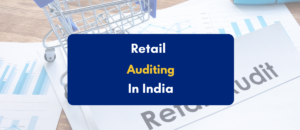Introduction
In the dynamic and ever-evolving landscape of business, organizations heavily rely on fixed assets to drive operational efficiency and foster growth. Proper management of fixed assets is crucial for accurate financial reporting, compliance with regulations, and overall organizational success. PKC a distinguished auditing firm, has carved a niche in the industry by specializing in conducting effective fixed assets audits to ensure accuracy and optimal asset management for its clients.
Understanding Fixed Assets
Fixed assets, often referred to as tangible assets, constitute a vital component of a company’s balance sheet. These long-term assets, including property, plant, equipment, and other tangible resources, have a useful life exceeding one year. Given their significance, accurate valuation and proper management of fixed assets are essential for financial transparency and strategic decision-making.
Understanding Fixed Assets
Fixed assets, often referred to as tangible assets, constitute a vital component of a company’s balance sheet. These long-term assets, including property, plant, equipment, and other tangible resources, have a useful life exceeding one year. Given their significance, accurate valuation and proper management of fixed assets are essential for financial transparency and strategic decision-making.
Importance of Fixed Assets Auditing
Fixed assets auditing involves a comprehensive review of an organization’s tangible assets to verify their existence, valuation, and compliance with accounting standards. This process is pivotal for several reasons, shaping the financial health and operational efficiency of a business.
1. Financial Accuracy
Accurate valuation of fixed assets ensures that financial statements reflect the true value of an organization’s assets. This is critical for stakeholders, investors, and regulatory bodies in making informed decisions. PKC’s commitment to precision in auditing contributes to a robust financial reporting system that instills confidence among various stakeholders.
2. Regulatory Compliance
Many industries are subject to specific regulations governing the reporting and management of fixed assets. PKC’s auditing services ensure that clients adhere to these regulations, mitigating the risk of legal issues and financial penalties. By staying abreast of the ever-changing regulatory landscape, PKC provides clients with the assurance that their fixed asset management practices align with industry standards.
3. Risk Management
Identifying and mitigating risks associated with fixed assets, such as theft, obsolescence, or inadequate maintenance, is a key aspect of the auditing process. PKC employs advanced risk assessment methodologies to safeguard clients against potential threats. Through comprehensive risk analysis, PKC helps organizations fortify their defenses, ensuring the longevity and reliability of their fixed asset base.
4. Enhanced Operational Efficiency
Efficient management of fixed assets contributes to streamlined operations. PKC’s audits help organizations identify opportunities for improvement, cost savings, and optimal resource allocation. By analyzing the usage patterns, maintenance records, and overall health of fixed assets, PKC assists clients in enhancing operational efficiency, ultimately leading to improved profitability.
PKC’s Approach to Fixed Assets Auditing
PKC adopts a systematic approach to fixed assets auditing, leveraging a combination of industry expertise and cutting-edge technology to deliver accurate and reliable results. The key components of PKC’s auditing process illustrate the firm’s commitment to excellence.
1. Physical Verification
Conducting on-site inspections to verify the existence and condition of fixed assets ensures the accuracy of the asset register. PKC’s audit teams meticulously conduct physical verifications, leaving no room for discrepancies. This hands-on approach is a testament to PKC’s dedication to delivering results that stand up to scrutiny.
2. Valuation Analysis
Utilizing industry benchmarks and valuation methodologies, PKC ensures that fixed assets are valued in accordance with accounting standards. By staying abreast of the latest valuation techniques and market trends, PKC provides clients with a comprehensive understanding of the true worth of their assets. This valuation accuracy is pivotal for informed decision-making and financial planning.
3. Documentation Review
Examining supporting documentation, such as purchase orders, invoices, and maintenance records, helps validate the ownership and history of fixed assets. PKC’s attention to detail during the documentation review process ensures that the audit is not only based on physical verifications but is also substantiated by a thorough examination of relevant paperwork. This comprehensive approach adds an additional layer of credibility to the audit findings.
4. Compliance Check
Ensuring that fixed assets comply with relevant accounting standards, tax regulations, and industry-specific guidelines is a crucial aspect of PKC’s auditing process. By conducting a meticulous compliance check, PKC helps clients mitigate the risk of non-compliance, thereby avoiding legal repercussions and financial penalties.
Conclusion
In conclusion, effective fixed assets auditing is a cornerstone of financial integrity and organizational success. PKC’s commitment to accuracy, compliance, and risk management makes it a trusted partner for businesses seeking to optimize their fixed asset management. By combining industry-leading expertise with advanced auditing methodologies, PKC ensures that its clients can confidently navigate the complexities of fixed assets in today’s ever-evolving business landscape.
As organizations continue to grapple with the challenges of a rapidly changing business environment, PKC stands as a beacon of reliability, providing the assurance that their fixed asset management practices are not only in compliance with regulations but also geared towards fostering long-term financial sustainability. With a focus on precision, transparency, and efficiency, PKC’s fixed assets auditing services play a pivotal role in shaping the financial resilience of businesses across diverse industries.
Author

Bhavika

 Expert verified
Expert verified 

